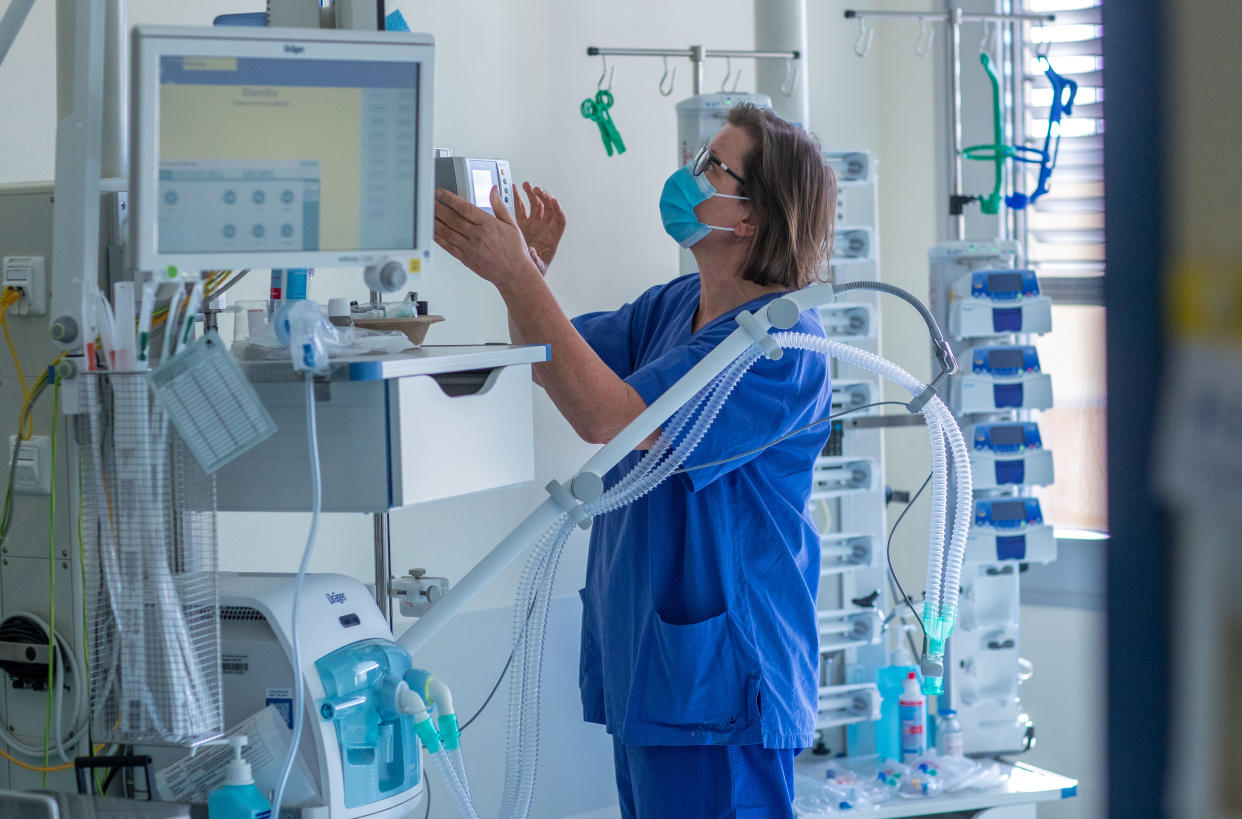Some of the UK's biggest firms are pooling resources to build NHS ventilators

A consortium of industrial, tech, and engineering companies have pooled their skills and resources to co-develop medical ventilators for the National Health Service in the UK.
The “VentilatorChallengeUK” consortium is led by Dick Elsy, chief executive of High Value Manufacturing Catapult, a group of manufacturing research centres.
Members of the consortium include Airbus (AIR.PA), BAE Systems (BA.L), Meggitt (MGGT.L), Ford UK (F), Rolls-Royce (RR.L), several UK-based Formula 1 teams, Siemens Healthineers (SHL.F), and Unilever (UL).
The consortium announced on Monday that it has been investigating different options for a Rapidly Manufactured Ventilator System over the past week, and will now “accelerate production of an agreed new design, based on existing technologies, which can be assembled from materials and parts in current production.”
It said companies in the consortium have now received orders from the British government for over 10,000 ventilators. They expect production to begin this week, pending rapid approval by the Healthcare products Regulatory Agency after the final audit.
Read more: Car industry pivot to ventilators isn't the miracle solution to global shortfall
The British government issued an urgent appeal earlier this month to British companies across industry sectors including aerospace and automotive to help address the acute shortage of ventilators and other medical devices in the UK in the face of the coronavirus.
The UK’s business and industry minister Nadhim Zahawi said this consortium will play a key role in efforts to ramp up ventilator capacity. “Over 3000 companies answered the Prime Minister’s call for ventilator production and their help will be vital as we make our way through this turbulent period,” Zahawi said in a statement.
The NHS only had 5,000 ventilators at the ready, and the government said some 30,000 would be needed.
“The essential and extraordinary work of this consortium will offer a beacon of hope to our NHS and all of society, and is a shining example of how the wider automotive and other manufacturing sectors can help in this time of crisis,” Mike Hawes, chief executive of the UK’s Society of Motor Manufacturers and Traders, said on Monday morning.
Dyson last week announced it was working “round the clock” to develop a new ventilator using components from vacuum cleaners.
Read more: Dyson to develop ventilators for the NHS
Separately, the Mercedes Formula 1 team and University College London Hospitals announced that they have teamed up to make another breathing device for coronavirus sufferers, who need to get air into their lungs. Like ventilators, these Continuous Positive Airway Pressure (CPAP) devices are also in very short supply in the UK.
"These devices are a halfway house between a simple oxygen mask and invasive mechanical ventilation which requires patients to be sedated,” UCLH critical care consultant Mervyn Singer. "They will help to save lives by ensuring that ventilators, a limited resource, are used only for the most severely ill."
The new CPAP devices are now being tested in ULCH and other London hospitals, and already have regulatory approval. If the trials are a success, Mercedes plans to produce up to 1,000 per day from next week onwards.

